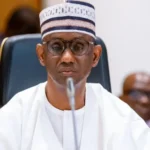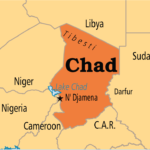By Oumar Baand Ousmane Diallo
On February 17, France and its European allies announced that they will begin withdrawing their troops from Mali after nearly 10 years. The move came on the back of growing tensions between France and the West African country’s military-led government, and signalled a major shift in the former colonial power’s engagement with the restive region.
France had been Mali’s primary partner in its fight against armed unrest since 2013. But the relations between the two countries started to deteriorate after Mali’s army led by Colonel Assimi Goita staged a coup in August 2020 and ousted democratically elected President Ibrahim Boubacar Keita. Initially, while pressuring the military junta for a swift return to civilian rule, France opted to continue its cooperation with Malian forces. However, the situation took a turn for the worse eight months later, when Goita staged a second coup and pushed out a civilian-led government appointed to oversee a transition period. In response, France first suspended its joint military operations with Malian forces and then announced its decision to “draw down” its counterinsurgency campaign in Mali.
- NIGERIA DAILY: How Genotype Tests Put Families In Jeopardy
- Reps seek humanitarian aid for Nigerians trapped in Ukraine
This marked the beginning of a vicious diplomatic battle between the two nations, which saw Mali publicly accuse France of training “terrorist groups” in the Sahel, deploy Russian Wagner mercenaries to the country and eventually expel the French ambassador.
Meanwhile, Mali’s ruling military announced its intention to remain in power for up to five years, and started accusing its critics, including the ECOWAS which imposed a trade embargo on the country in response to the move, of trying to “sabotage” Mali’s transition. It firmly turned public opinion against France by accusing its former partner of working with ECOWAS to undermine Goita’s efforts to rebuild institutions and stabilise the country. As a result, France found itself with no option but to withdraw its troops from Mali and relocate them elsewhere.
While Mali’s military government escalated its criticism of France and its counterinsurgency campaign in the past year, as part of a populist effort to legitimise its power grab, discontent with Operation Barkhane was simmering beneath the surface for much longer in Mali.
It is undeniable that since its start in August 2014, Barkhane has been very influential in the Sahel. As a force that was 5,100 strong at its peak, running operations in a vast region covering five countries, Barkhane has been a key partner of not only regional armies but also the UN peacekeeping mission active in Mali since 2013.
Over the last few years, however, these French-led counterterror operations in Mali and the wider region have also been causing much frustration and anger, due to their apparent inability to decisively defeat armed groups and shield civilians from violence.
Long before Malian authorities started to define France and Operation Barkhane as a destructive force in the Sahel, populations across the region were voicing their discontent with the counterinsurgency effort.
Several interconnected factors turned the Malian public and other populations against Operation Barkhane and led to the failure of the French-led counterinsurgency efforts in the Sahel.
First of all, many Sahelians did not expect their national armies to suffer high casualties against armed groups while being supported by the French military. Similarly, they assumed the French military presence in the region would prevent civilian casualties or widespread displacement.
The ever-increasing number of international and regional military coalitions and counterinsurgency programmes also contributed to the failure of Operation Barkhane. Over the years, countless formations, from MINUSMA, G5 and Takuba to the European Union Training Mission, Coalition for the Sahel and P35, crowded the region. As this multi-headed military architecture repeatedly failed to bring stability and peace to the region, local populations started to lose faith in all existing interveners, and especially their apparent leader – France.
Beyond all this, however, the failure of Operation Barkhane was also a consequence of the failure of French policies in the Sahel. In its engagement with the region, France repeatedly put its geostrategic and economic interests first, and applied different governance principles in different countries, losing the trust of local governments and populations alike.
A significant portion of the Malian citizenry rejected Operation Barkhane and French-led counterinsurgency efforts in general because rigid foreign policy stances by France constrained the policy options of the Malian government.
So, in the end, the coups in Mali did not cause but only sped up the failure of Operation Barkhane and the withdrawal of France from the region.
With more than 18,000 personnel, MINUSMA is currently the largest UN peacekeeping operation in the world, but also the deadliest one, having sustained more than 260 fatalities. Facing operational challenges in a vast and sparsely populated country, the UN force benefitted from the logistical support of Barkane, with whom it shared some facilities. With Barkane and Takuba – a smaller, European special operations force – leaving Mali, it remains to be seen how MINUSMA will adjust and continue to operate. There is also a chance that the masses who rallied against the French military presence may now focus their attention on pushing out the UN peacekeeping mission.
For France, leaving Mali does not equate to leaving the Sahel, obviously. With a plan to relocate troops to Niger’s capital Niamey, their strong presence in Chad and continued operations in Burkina Faso, this is a mere reshuffling of the French deployment in the region – a deployment that has been continuous since 1960 in Chad.
What is certain is that the withdrawal of French troops from Mali marks a geopolitical shift, in which French military presence is contested not only by the state but also by the national citizenries across the Sahel.
Source: Aljazeera
 Join Daily Trust WhatsApp Community For Quick Access To News and Happenings Around You.
Join Daily Trust WhatsApp Community For Quick Access To News and Happenings Around You.

